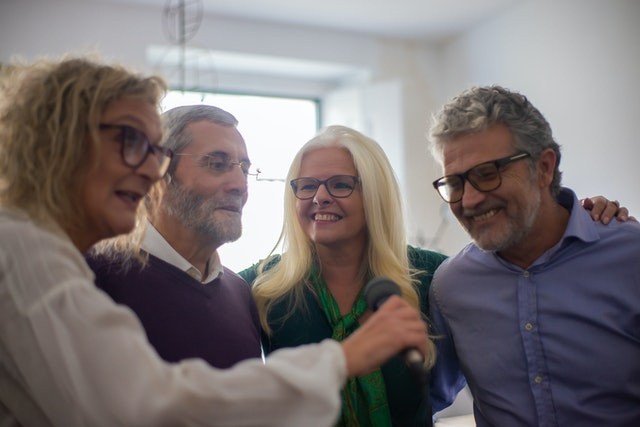Professor Teppo Särkämö, from the University of Helsinki, is currently investigating how aging is affecting the way the human brain is processing singing, which potentially has essential therapeutic applications.
As specified in a SciTecDaily report, ask any member of a choir why he enjoys singing with the group, and he will likely say something about the "euphoric effects" it has on his mental health.
Essentially, a group of neuroscientists and clinical psychologists expressed belief over such benefits that could extend to enhancing brain function, not to mention treating a language disorder called "aphasia."
Professor Särkämö explained, that they know a lot of things about speech processing although not much about singing. He added they are now exploring different functions related to singing, which might be preserved in numerous neurological disorders.
ALSO READ : Exercise Regularly to Reduce Your Anxiety; 5 Workout Routines You Can Try to Cut the Risk

Melodic Intonation Therapy
For people suffering from aphasia, a neurological condition that's severely damaging communication, and is typically caused by stroke, a related Neuroscience report said, communication can be nearly impossible as they are struggling to sound out the right words.
Boosting Brain Function in Later Life Through Singing
— Neuroscience News (@NeuroscienceNew) May 28, 2022
Singing in a social group such as a choir may help protect cognitive function and treat aphasia in older adults.#aging #neuroscience #sciencehttps://t.co/3KOZzCB8Me
Yet, through an approach called "melodic intonation therapy," whereby individuals are asked to sing a daily sentence rather than speaking it, quite tremendously they frequently discover a voice.
As the PREMUS project coordinator, Särkämö, together with his team, used similar techniques, scaling it up through specially-run "senior choirs" with aphasia patients and their families.
The team explored how singing could contribute to an essential rehabilitative role in occurrences of aphasia and might prevent a decline in cognition, as well.
The PREMUS project is coordinated with a local aphasia organization in Helsinki, which involves approximately 25 people each choir, both the aphasia patients and their family caregivers. Essentially, the results of the test showed promising results.
Singing as a Tool
Eventually, explained the professor, the objective, through their work with people who have aphasia is to use singing as a tool for speech production training and ultimately allow them to communicate minus singing.
Alongside an aphasia choir, the research team performed extensive fMRI brain scans as well, of young, middle-aged, and older adults who took part in choirs to understand the reason singing is very important at different stages of life.
As a result, the team discovered that as people age, the brain networks involved in singing go through lesser changes than that processing speech, suggesting that singing is more general in the brain, not to mention, more resilient to aging.
Their research suggested too, that being actively involved in singing, contrary to listening to choral music, for instance, is critical.
Särkämö explained that when singing, an individual is engaging in the "frontal and parietal systems" in his brain where he is regulating his behavior, and he is using more of his motor and cognitive resources when it comes to "vocal control and executive functions."
Related information about singing and aging is shown on Chris Liepe's YouTube video below:
RELATED ARTICLE : Do You Want to Live 16 Years Longer? New Study Says Commit to a Lifetime of Brisk Walking
Check out more news and information on Aging in Science Times.










